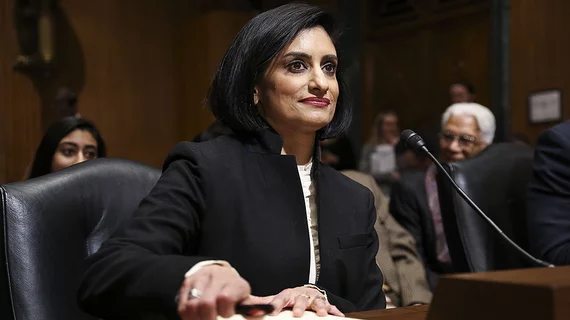CMS may increase accreditation control
CMS Administrator Seema Verma is once again putting pressure on Medicare accrediting organizations that certify healthcare providers for reimbursement under the federal healthcare program.
During a speech at the 2020 CMS Quality Conference Feb. 25, Verma outlined how the agency is taking a hard look at AOs, which inspect 5,000 hospitals and 15,000 nursing homes that participate in Medicare, according to Verma. CMS partners with AOs to inspect these healthcare providers and certify them for Medicare.
“Just as our regional offices underwent a complete overhaul so must our relationship with states and accrediting organizations acting on behalf of CMS,” Verma said.
CMS previously voiced its desire to beef up control over AO in a proposed rule last year. The agency’s proposal would require AOs to submit to CMS when they have changes of ownership. This requirement would at least notify CMS when AOs change ownership, something that currently only has to be done during certification renewals.
This notification requirement could help CMS spot conflicts of interest between AOs and the providers they are accrediting.
The scrutiny on AOs stems a suspicion that these organizations are lacking standards in their practices.
“An increasing amount of evidence indicates that accrediting organizations are not living up to that high bar,” Verma stated. “The recent spate of serious deficiencies at large hospitals––rising to the level of patient harm and sometimes even death––that accrediting organizations had deemed compliant with Medicare’s standards is deeply concerning to CMS.”

